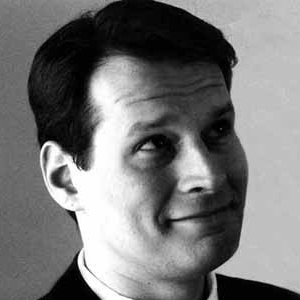In a nursing home in St. Paul, Minnesota last year [2018], a 91-year-old Quaker named Rhoda Gilman died, and her death was barely noted — which is a shame, because she led a fascinating life. She wrote several excellent books on American history, raised a family, ran for lieutenant governor of that state in 2002, and was one of the early leaders of the Green movement in America … and lived through one of the great and unappreciated lost chances of world history.
… This is an interview I sat on for about 15 years, always intending to write a larger article. ”
– Brian Kaller
Part I was published a few weeks ago:
https://www.resilience.org/stories/2019-07-04/the-lost-chances-of-the-greens-part-1/
Part II
Kaller: Would you say that Greens everywhere are in favour of a more localized economy?
Gilman: I don’t know about that. I would suspect that’s true, because it’s almost forced by the idea of a more Earth-friendly society. On the other hand, I don’t know what Green Parties in other countries are doing. Certainly in this country, that is true, and is something I’ve worked for in Minnesota, a more localized economy.
Kaller: When I looked at the early issues of the North Country Anvil [a 1970s publication Gilman edited in rural Minnesota], I found it interesting. How integral would you say that was to the early Green Movement?
Gilman: I’d say a good many of them were integral.
[Gilman went on to describe some of the early Greens, mostly farmers and homesteaders from various Christian denominations; I didn’t want to publicise their names without permission.]
They were Luddites; back-to-the-landers, and that particular aspect of the Anvil, carries over to the Green movement … [but] the Greens function on the Internet, and they are not Luddites in the sense of wanting to go back to the land; that was a function of the 1960s and 1970s, especially here in the Midwest. It may not have been as strong elsewhere, but I suspect it was – certainly in New England it was. That was one aspect of the Anvil.
Kaller: It felt like such a rural publication.
Gilman: One of the things that interested me was that it is a rural voice for the Green movement, whereas many others like Murray Bookchin were very much urban.
Kaller: When you were talking about these early ideas — systems theory and the Club of Rome – how many people were paying attention? How big was this movement?
Gilman: It would be impossible for me to say; I was very much on the fringes of it. I was reading a lot of books, but I wasn’t involved; I was raising kids. I was not involved as an activist in any way.
Kaller: But you were interested early on.
Gilman:Yes, I became interested in the mid-1970s, and my reading went back before that. But through the 60s I was “nesting,” as they say, working full-time and raising a family, and that does keep one a little busy.
Kaller: I know (chuckle). I was trying to get a feel for how small the number of people were, and what kind of people.
Gilman: One key person whose work I read a good bit of, and went to several conferences with, was William Irwin Thompson – and I won’t blame you if you’ve never heard of him. I have a number of his books up there; he came out of the Sixties. His first and best-known book was The Time Falling Bodies Take to Light, the rest were less well-known and less interesting.
In any case, I joined his Lindisfarne Association, and went a number of seminars and conferences, where I met some very interesting people. Mary Catherine Bateson – I never met Gregory, but his daughter Mary Catherine was at many of these conferences – and people like Wendell Berry and his wife, and a number of very Green-leaning people. They were also anti-capitalist, also, but again it’s a much broader thing than capitalist vs. socialist.
Part III

Kaller: I’ve been to a lot of rallies, both before and after I became a journalist, and it always amazed me that so many people there considered themselves to be, because they were fighting the takeover of big corporations, anti-capitalist. I’d read The Wealth of Nations, and
Gilman: Written before corporations existed …
Kaller: Yes, and I believed that, by opposing things like corporate monopolies, I am being extremely capitalist.
Smith came out of a very Christian society, where the moral rules of how you did things were never questioned … And that was the framework within which he saw the market operating. When you hit the limit of those rules, the free market no longer applies.
Gilman: I would agree with you on that. Yes, it’s totally oversimplified by people who don’t know the history. I have an economics major, so I know a little bit about the emergence of economic theory, and it is a far cry from what neoconservatives today talk about. The whole nature of the world has changed, and the rise of corporations – one of the big inventions of industrialism, equal to the internal-combustion engine, or perhaps more fundamental. That is a much bigger picture than just Marxism vs. capitalism, or capitalism vs. socialism.
If we were living in Adam Smith’s world, we wouldn’t be doing badly at all; the Greens would be right at home.
Smith came out of a very Christian society, where the moral rules of how you did things were never questioned. That was God’s Word, and I don’t think even Adam Smith questioned God’s Word. And that was the framework within which he saw the market operating. When you hit the limit of those rules, the free market no longer applies.
But nowadays, God is the free market. Instead of the divine hand, the invisible hand of the marketplace is the hand of God.
Kaller: People describe it the same way; people will dismiss any problem by saying “The Market will take care of it.”
Gilman: And a truly free market has almost never existed, if you mean the classic definition of a free market. And it certainly doesn’t exist today; the entire advertising industry is an effort to subvert the free market.
Kaller: Government gives huge subsidies to corporations to keep going, there is a tax structure that allows people to .. well, you know all this.
Gilman: Yes, and I think we’d be in very close agreement on this.
Kaller: What are some of the things the Greens predicted early on that are now happening?
Gilman: The limits to growth. Greens, along with all the rest of the world, have been very slow to move ahead with limiting population, because no one knows how to do it, except that it’s obvious that the more you educate women, the growth of population immediately slows down. The limits of the planet, I think, is the main thing.
Kaller: In the last few decades, have you ever seen anything happen – like, say, the energy crisis of the 1970s, the changes in American politics, the 9-11 attacks, or the Iraq War, and say, ‘That’s the kind of thing this person was talking about way back when.’?”
Gilman: I see it continually. The fact that we are running out of oil – there’s the limits to growth right there … The other thing that I have personally been involved with is the peace movement. And the Greens immediately picked up on the fact that we can’t have wars anymore. We’ll only destroy ourselves. And that was a fairly universal understanding among thinkers at that time. We had the atomic bomb; forget war from here on. And that is only one possibility right now. Weapons of mass destruction, if unleashed, will destroy everybody – they are not going to be controllable. And I think that’s been recognized pretty much since World War II among any forward-looking or fundamental thinkers.
Kaller: And yet, when I read things by the peace movement, I think how enthusiastically I agree, and yet I’m frustrated by a lack of practical implementation. How much of that did you see?
Gilman: An enormous amount. I guess I see this in a very big framework of science and where is the human species going, and I do see us as being in a crisis. I believe we are living in a collapsing civilization. And that makes it very hard to gain perspective, because it is happening so fast in so many areas of our lives, all around us, that to see exactly what is happening is very hard.
I think the fundamentalist movements throughout the world – Christian, Muslim, Jewish (and there are a lot of very fundamentalist Jews – I’m not aware of any really fundamentalist Buddhists, but they must exist, and certainly in Sri Lanka they are far from pacifist) – and the return to familiar beliefs is a panic reaction, something to hold on to, to give people a sense of security in a world that is collapsing, that they can’t understand and that seems completely out of control.
And of course that only precipitates more violence, because anyone who feels they have an exclusive lock on the truth is going to end up fighting somebody else who feels they have an exclusive lock on the truth. There is no possibility of a peaceful world as long as that is the prevailing type. I’m optimistic enough to think that eventually that will play itself out, but how exactly, I don’t know.
Photos by Brian Kaller. Top photo is a cottage on an Irish hillside. Second photo is stained glass at Country Life Museum, Ireland.






